Mozambique: Minister meets Venâncio Mondlane's delegation on legalising new party Anamalala
Mozambique: Dhlakama’s death caused a deep crisis in Renamo – academics
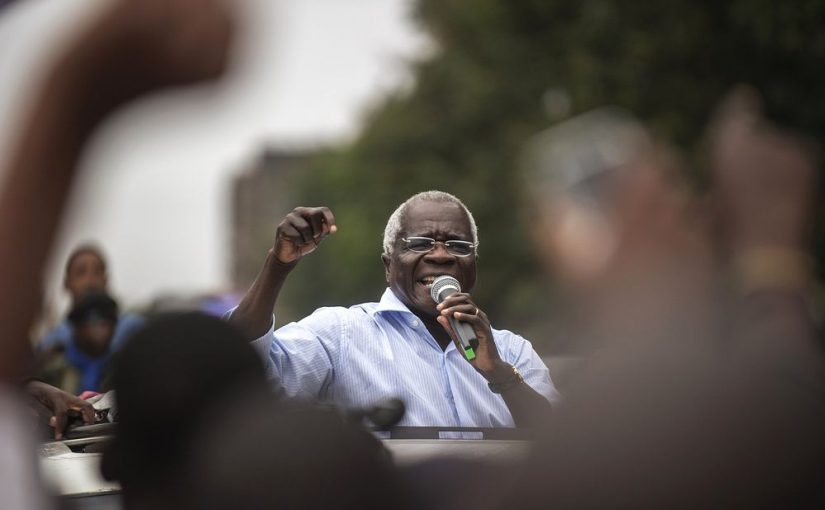
Afonso Dhlakama addressing a crowd of supporters during a rally in Maputo, Mozambique on Oct. 11, 2014. [Photo: Gianluigi Guercia/AFP ]
Mozambican analysts say that the death of Afonso Dhlakama left Renamo in crisis, because Mozambique’s main opposition party was not prepared to lose a “charismatic leader” who ran the organization as a “messiah”.
Afonso Dhlakama died on May 3, 2018 in Serra da Gorongosa, bringing to an end a leadership term lasting 39 years.
“It [Renamo] is sinking, but it is important to say that the main responsible for Renamo’s situation today is [Afonso] Dhlakama himself,” Rector of the University of Mozambique (UDM) Severino Ngoenha says.
Ngoenha , who holds a PhD in Philosophy from the Pontifical Gregorian University in Rome, considers that the Mozambican National Resistance (Renamo) is currently divided into two wings: a political one, led by the movement’s elected leader, Ossufo Momade, and a military one, commanded by the leader of the self-proclaimed Renamo Military Junta, Mariano Nhongo, who contests the presidency of the party.
“Today, Renamo is clearly divided, and that division is not just between Nhongo and Ossufo Momade,” he adds.
In addition, he explains, there is that section of the party in parliament, and another in rural areas – neither of which identifies much with the other.
“We have a Renamo from parliament, with high salaries and privileges, and a Renamo confined to the countryside, which is very much of the countryside,” the UDM rector says.
Severino Ngoenha mentioned that the autocratic style with which Afonso Dhlakama led the party for 39 years at the head of the organisation undermined any succession planning for the party’s national projection and its status as a credible alternative to the Front of Liberation of Mozambique (Frelimo), the party in power for 44 years.
“A political organisation is not an individual organisation, it does not belong to a ‘messiah’: the leader of a movement is a first among equals,” Ngoenha says.
Under Momade, Renamo does not see a dynamic of debate that allows the party to present itself as an alternative to Frelimo, “and this is a pity, because we need Renamo as a strong movement and not as a guerrilla movement, not as a movement of former combatants,” he says.
The solution would be for Ossufo Momade to “reinvent himself” and assert his power in the party or the emergence of a reform impulse given by a youth wing.
In turn, the founder and first rector of the Polytechnic University, the country’s first tertiary education institution, Lourenço do Rosário, says Renamo failed to overcome the “mourning” caused by the death of Afonso Dhlakama, and that strong internal differences prevail.
“Renamo did not manage the mourning politically, and, militarily, it has Nhongo biting its heels. This is the problem that Renamo has to solve,” Do Rosário says.
Renamo’s organisation and management structures were based on Afonso Dhlakama and his death brought to the surface the party’s weaknesses, according to Do Rosário.
The academic underlines that the current leader of Renamo does not have the charisma of his predecessor, has no authority over the armed wing of the party and made mistakes in hastening reforms in the organisation’s structure without first consolidating power.
“Ossufo Momade went to live at Renamo headquarters in Gorongosa in order to secure the military wing before making his way to congress, but this, in practice, did not happen, because part of the military does not accept him as a leader,” Do Rosário posits.
The dean of the Polytechnic University says that some parts of Renamo saw Ossufo Momade as a caretaker solution pending the election of a new leader to succeed Afonso Dhlakama, but the current party president ended up being confirmed with a large majority in congress.
Faced with the challenge to his leadership, Ossufo Momade will have to find ways to pacify the party, because the country needs a united and strong opposition to present alternative governance.
“Ossufo Momade himself is reinventing himself, because he was elected, he is legitimate, he won the congress, he did not come to power in a ‘coup’,” Do Rosário says.
As to whether the conclusive defeat suffered by Renamo in the general elections of October last year reduces Ossufo Momade’s legitimacy, Do Rosário recalls that Afonso Dhlakama lost in all five general elections in which he participated, but managed to survive politically.
The academic points to Frelimo as an example of overcoming “mourning and orphan-hood”, recalling that the party has managed to remain in power even through the deaths of important leaders.


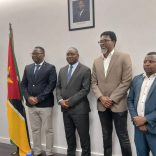

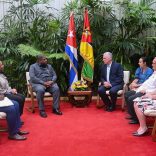
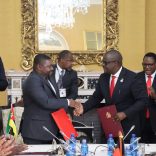

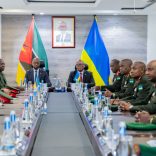




Leave a Reply
Be the First to Comment!
You must be logged in to post a comment.
You must be logged in to post a comment.